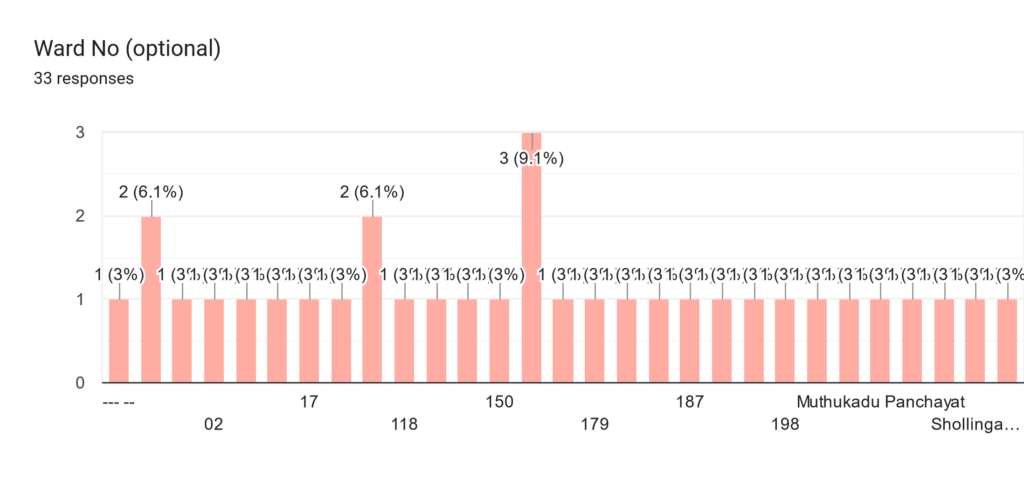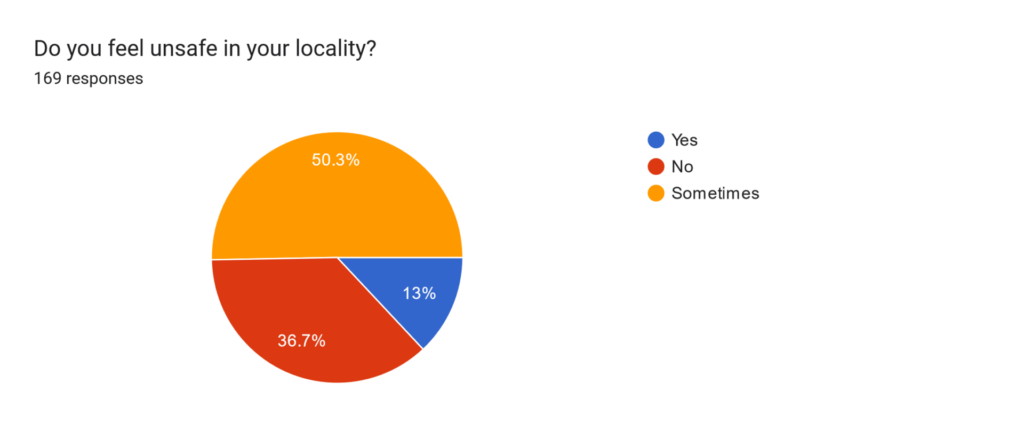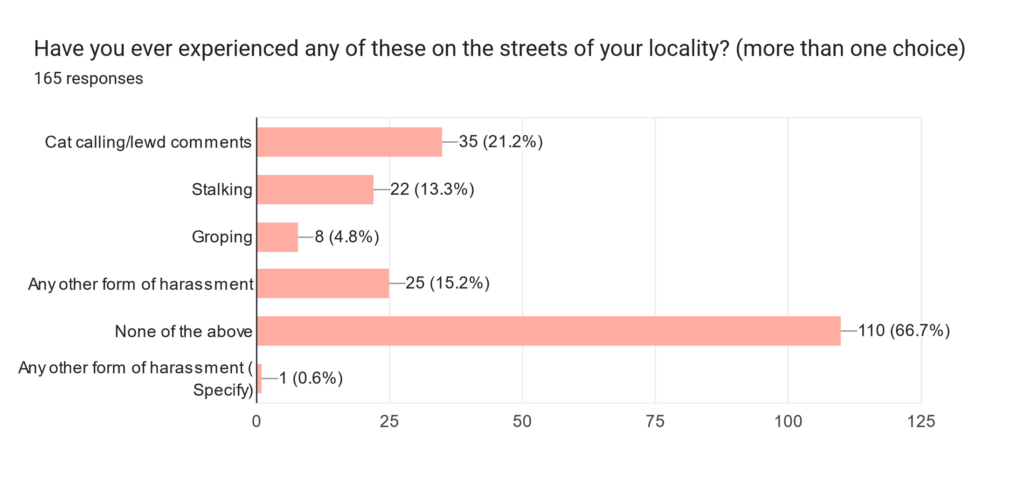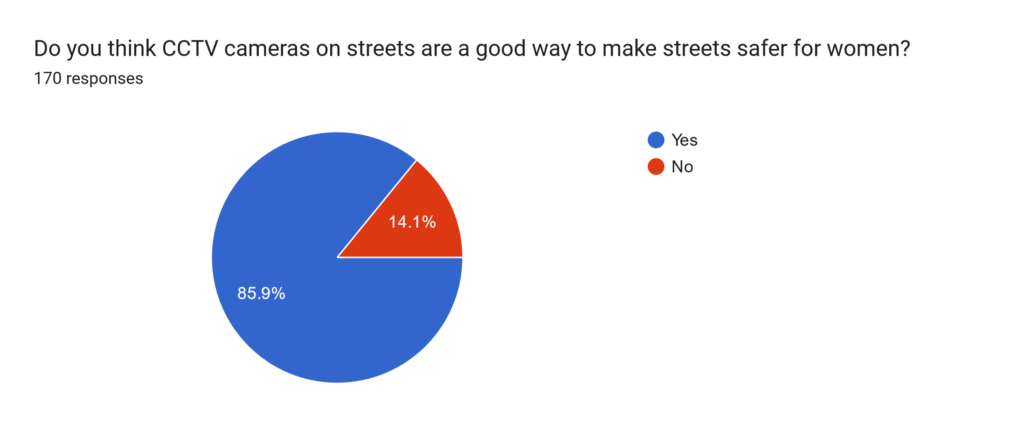In view of Women’s Day, observed on March 8, Citizen Matters conducted an online survey on women’s safety in Chennai. As many as 171 women took part in this survey between the age group of 18 to 51 years. These women were from areas like Sholinganallur, Adyar, T Nagar, Kotturpuram, Thiruvanmiyur, Royapuram, Perambur, Madipakkam, Anna Nagar and other parts of Chennai. Though we circulated the survey across Chennai, many of the responses were from women in the Southern parts of Chennai, indicating the lack of access for women from areas of North Chennai to take part in such online surveys.

Despite finding their localities safe to some extent, the survey found that the women continue to face issues like catcalling/lewd comments, stalking, groping or any other form of harassment in their localities accounting for street harassment. 85.9% of the women who responded to the survey think that the CCTV cameras on streets are a good way to make streets safer for women.
Read more: Women construction workers face serious health and safety hazards at work and beyond
On women’s safety in Chennai streets

Of the 169 women who responded to the question of whether they feel unsafe in their respective localities, 13% of them responded that they feel unsafe, 50.3% responded that they feel unsafe sometimes and 36.7% said they did not feel unsafe in their localities.

Despite finding their localities safe to some extent, the survey also found that the women continue to face issues like catcalling/lewd comments, stalking, groping or any other form of harassment in their localities.
Factors that adversely affect women’s safety
As many as 67.5% women respondents felt that poor or no street lighting in their localities is one of the major reasons for women to face harassment on the streets, while 49.4% said that inadequate police patrolling adversely affected their safety. The more the bustle on the streets, the safer the women. Around 40% of the respondents felt that lack of human activity on the streets (shops closing early/not many street vendors/not many people moving around) adversely impacted safety in their area. The presence of TASMAC outlets also compromised women’s safety, 25.6% of the respondents said.
Read more: Women working night shifts: What does the law say about ensuring their safety?

Do CCTV cameras really make streets in Chennai safer?
Often, the government proposes CCTV cameras on streets to make streets safer for women. While some of the areas in which the women took part in the survey have CCTV cameras, the overall response was that they find the CCTV cameras useful to make the streets safer.
The Gender and Policy Lab in Chennai has also conducted a ‘Baseline Study On Women’s Perception Regarding Access And Safety In Public Spaces And Public Transport In Chennai City‘ in which women from different areas across Chennai have stated that the presence of CCTV cameras make them feel safer in the streets. “CCTV cameras may not be very helpful in preventing the crime against women. However, when a survivor decides to lodge a complaint, CCTV cameras come in handy as evidence. This helps to prevent the survivor from going through the ordeal of cross examination during the investigation,” says a representative of the Gender and Policy Lab.
Though CCTV cameras neither prevent nor help women when they go through a situation of abuse/assault, it has definitely given a perception of ‘feeling safe’ in a locality for women. “To some extent, CCTV cameras also serve as a deterrent. After the government installed CCTV cameras in MTC buses, we are seeing that it instil a little bit of fear among the offenders. Since buses are a confined space, it helps but when it comes to larger public spaces, it becomes quite complex,” the representative adds.
Though CCTV cameras are being installed under various government schemes, Sunitha, a student from Chennai, questions the functionality of the cameras. “There might be a CCTV camera on a street but what is the guarantee that it is functional? Who do we go to if we have to retrieve footage from those recordings? The public in the locality are not made aware of these,” she says, further asking if the government has conducted any impact assessment on how the CCTV cameras have contributed to the safety of women on the streets.